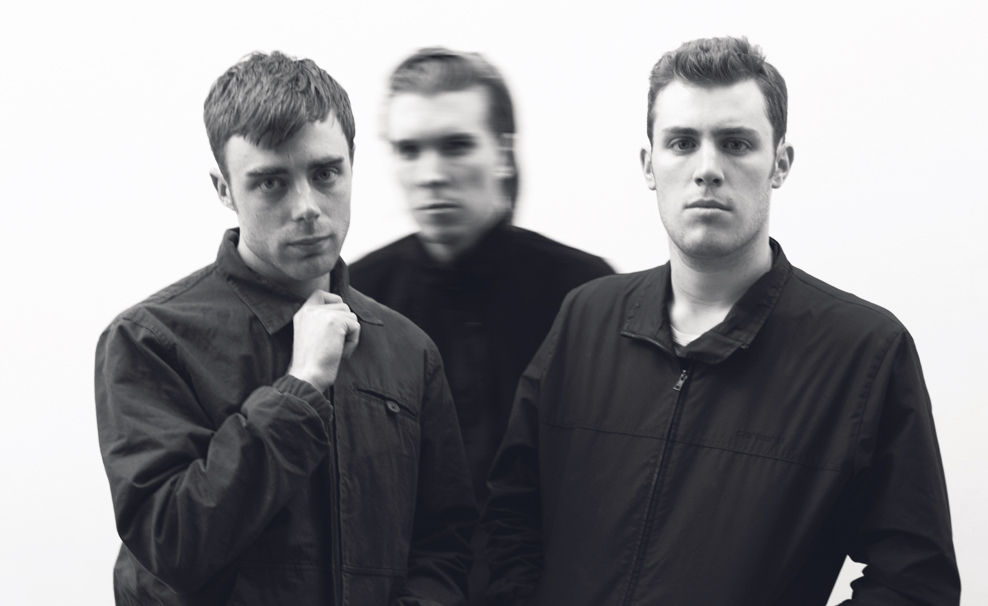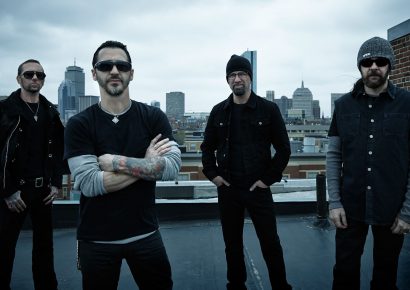It’s been a number of years between +Dome and new album The Worry. They’re two different sounding albums, is that a reflection of the writing and recording processes?
It was entirely different. One of the main differences is that while we were making it, we were all scattered around different parts of the world. The three of us were rarely together. We did get together, maybe two or three times, in the studio to exchange ideas. For the most part it was writing individually and putting the files in the Dropbox, and having someone else work on them. This process of refinement, I guess, that comes out in the way the album sounds, this cross-pollination of style and influences and production techniques.
Is there a differing approach between song composition and its tonal qualities, or is it there one process?
It’s not like there’s a template we start from with songs. We don’t decide on a palette of tones from the start and build everything from there. That would be a really good idea, maybe we will do something like that eventually, but now I don’t think we’re organised enough, or that we have the patience to work with the same sounds. That’s probably why it could be perceived as being diverse in sound. We’re always experimenting with ideas we try and mould into a track. It usually starts with a loop that’s developed into a track.
In that sense, how do you know when a track is done? Is that a difficult call to make?
The night before deadline pretty much. It’s not done until it’s stripped from our hands. That’s the difficult thing with making music in this day and age. When you’re making records, you’re the composer, the performer and the sound engineer for the most part. There are always things you could go back to – change that bassline, or change that sound. I personally have a lot of trouble with knowing when it’s done. I think that’s why these freakin’ records take so freakin’ long.
The three of you are based around the world respectively, but you have toured fairly regularly, if not extensively, between +Dome and The Worry. Do those live appearances shape the creation of new music?
It doesn’t have a huge influence. That performance aspect doesn’t really have a direct impact on the music that we make. It’s rare that we get together and ‘jam’, and when we do get together and tour, it’s more about hanging out, getting drunk and talking about movies and stuff, rather than doing what we probably should be doing – working. That being said, whenever we do get to tour, we will take a couple of days to lock ourselves in a room and force ourselves to make some music, finalise some songs. That can be a really difficult process. You get halfway through a song and there’s a disagreement with the direction that you want it to go in. That can be difficult to resolve over email sometimes, so that’s a good time to get together and nut the ideas out in the studio.
Obviously the introduction of vocals was a big leap. Did you approach that element with caution?
When we first decided to make the album, the suggestion of vocals was there, but we never said “Oh, let’s make a vocal-based album”, just maybe a couple of vocal-based tracks. It just happened that there were vocals on the album. We didn’t change our writing style to allow us to put vocals on there. It just happened that we listened to music that was a lot more minimal and sparse, and that meant that there was room for vocals in there. There were so many different factors that led us to using vocals.
In your recent shows there has been a sense of onstage symmetry and shrouding of visuals, which I see as a sort of rejection of the notion of Alex [Cameron] being a front man.
I guess we’re sort of breaking that rule. How it came about, we were planning this record, then Alex showed us this vocal track bashfully, and we said “Well, that’s actually pretty good, since when could you actually sing? Where did that come from?” Then we started writing these tracks with more space in them, and it happened organically.

